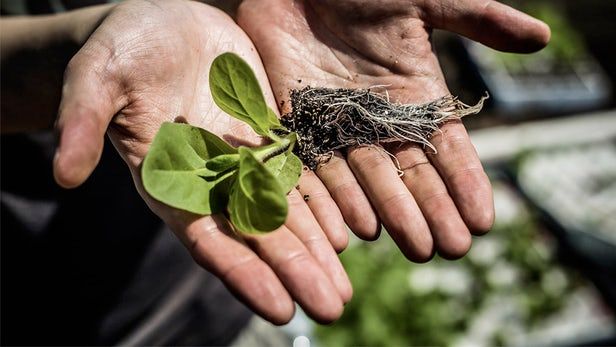Check out the SPACe_C eMart, the ice cream truck-style food delivery service of the future that offers fresh food and educates consumers on farm-to-table eating.



We take a somewhat humorous look at the messaging and the comfort stories people tell themselves to distract themselves from seeing why age-related diseases and dying from them is a problem that needs solving.
Here’s what might be considered a paradox: right now, the Facebook page of Death Cafe—a place where you go to talk about death—is a rather lively place, whereas pages about life extension are comparatively rather dead places. This screenshot shows the activity of a Death Cafe post:
There is no doubt that the subscribers of the Death Cafe page are quite engaged, but if the average message that the page aims at conveying is the same as in the text snippet above, then there is no paradox at all. The core of that message is “don’t worry, death is nothing to fear” (which, incidentally, implies you don’t have to engage in any extra effort to prevent death), whereas the core message of a life extension page is, “death is a problem, but hey—with some effort, we can beat it. Maybe.” That’s a bit like a kiosk giving candy away for free right next to another kiosk that first serves you overcooked broccoli and then says that you might get a nice present decades from now, assuming that you work hard enough for it—where do you think most people would flock to? Exactly.

These technologies will be applied to produce self- cleaning and aseptic machine parts for food industry.
Project will develop high-throughput laser-based texturing for fluid-repellent and antibacterial metal surfaces using innovative industrial high-average power ultrashort-pulsed lasers in combination with high-performance scanning heads. These technologies will be applied to produce self-cleaning and aseptic machine parts for food industry (e.g. components in contact with biological foods) and home appliances (e.g. dishwashers) by utilising a beam deliverary method over areas that can reach 250mm2.

Spicy food is popular the world over, but the active ingredient that makes food taste “hot”—capsaicinoids, a group of chemical compounds has useful properties beyond making food taste delicious. However, the plants that make them (the chili pepper family, or Capsicum) are small and have relatively low yields. A new paper published today in the journal Trends in Plant Science proposes an alternative: engineering tomato plants to produce capsaicinoids. If all goes well, someday, you could enjoy a spicy tomato, or even be treated with capsaicinoids extracted from one.
The paper, written by a group at Brazil’s Federal University of Viçosa, builds on recent work that showed the tomato has all the genetic information it needs to produce capsaicinoids. “We know that all the genes are there, but in the tomato they are silent,” study author Agustin Zsӧgӧn says. His paper proposes a method for using gene-editing techniques to activate the genetic machinery in the tomato that tells it how to produce capsaicinoids, transforming the plant into both a “biofactory” that could produce larger amounts of the chemicals than it’s currently possible to grow and a spicy snack.
Tomatoes have capsaicinoid genetic pathways like peppers because the two South American plants are related. “In our lab, we work with both species,” Zsӧgӧn says. Last year, his team used gene editing to “domesticate” a wild tomato in just a few generations, engineering the strain to produce larger fruit, and greater quantities of it, than in the wild. This kind of process is how we ended up with the crops we eat today—early farmers planted the offspring of the most fruitful plants of each generation, enabling their genetic survival. CRISPR-Cas9 is just a shortcut.

ARMONK, N.Y., Jan. 4, 2019 /PRNewswire/ — IBM (NYSE: IBM) Chairman, President and CEO Ginni Rometty will deliver the opening keynote at CES 2019 on Tuesday, Jan. 8. CES is the largest and one of the most influential technology events in the world.
Rometty will show how technologies like artificial intelligence, blockchain and cloud are reshaping the world of business, and, in turn, our daily lives. She also will talk about what’s coming next in these pioneering technologies – and how new data will revolutionize how we live, work and play. Rometty shares perspective on the future of technology in the Consumer Technology Association magazine It Is Innovation (i3) CES edition: https://www.nxtbook.com/nxtbooks/manifest/i3_20190102
Rometty will be joined onstage by Ed Bastian, CEO of Delta Air Lines; Charles Redfield, executive vice president of Food for Walmart; and Vijay Swarup, vice president of R&D for ExxonMobil.


An international team of researchers has, for the first time, demonstrated that by fixing a common glitch in photosynthesis, a crop’s yield could be improved by around 40 percent. The landmark study suggests optimizing a plant’s photosynthetic efficiency could significantly increase worldwide food productivity.

Scientists have fixed a natural flaw in photosynthesis, and as a result have boosted plant productivity by an incredible 40 percent compared to wild relatives.
Photosynthesis is the chemical reaction that lets plants turn sunlight and carbon dioxide into food, and this new hack could result in enough calories to help feed another 200 million people on our planet, from the same volume of crops.
As of now, the fix has only been applied to tobacco plants, so we’re a long way off using this to boost our food supply. But it’s an incredibly promising first step.

A reconceived farming system can rapidly improve fertility without chemical fertilizers, and without sacrificing crop yields.

Such a good news for the holidays! Wonderful food ranking of the 100 most nutritious foods, published in PloS journal. Notice the eighth best place- pork fat: “… 8. PORK FAT 632kcal, $0.95, per 100g A good source of B vitamins and minerals. Pork fat is more unsaturated and healthier than lamb or beef fat…” And for my Bulgarian and other Balkan friends, even better, the seventh best food is the cheapest, time-filling pumpkin seeds, we grew up with. Merry Christmas and a Happy New Year!